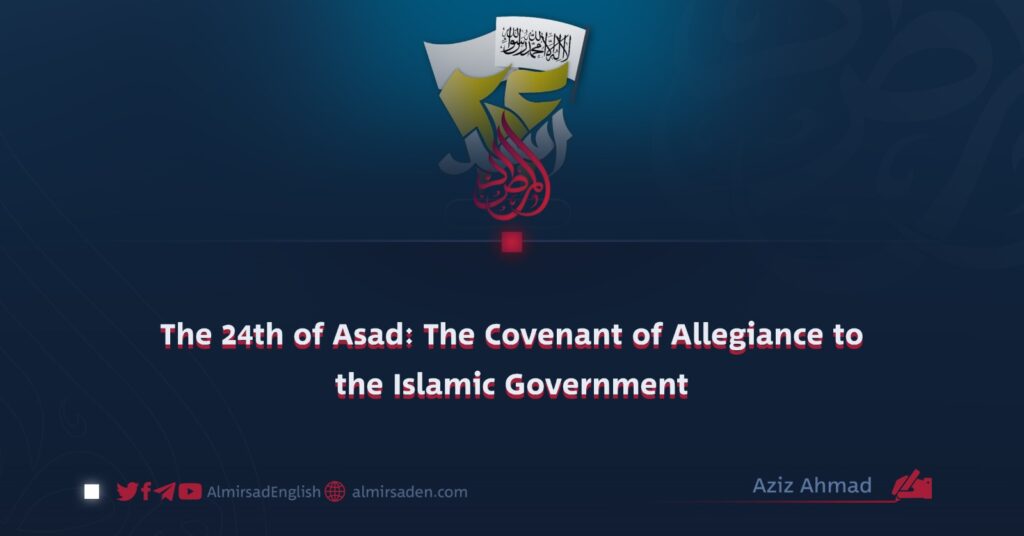Aziz Ahmad
The 24th of Asad occupies a defining place in Afghanistan’s contemporary history. On this momentous day, the nation’s long-weary heart experienced renewed vitality. After years of relentless jihad, resistance, and steadfast perseverance, the people of Afghanistan once again pledged their allegiance to the Islamic government. This covenant was not inscribed on paper but consecrated through the blood of martyrs and the unwavering devotion of those committed to the service of Almighty Allah.
The city of Kabul on that day presented a remarkable tableau of unity and faith. Streets that had long symbolized occupation and division bore witness to the resolute steps of those who restored freedom and Islam to the nation. The afternoon call to prayer resounded across the city, proclaiming the advent of a new era with the solemnity of a divine mandate.
This reaffirmed allegiance marked a return to Afghanistan’s authentic path. Like waters reunited after a long division, the nation sought refuge once more in the embrace of Islam. Today, as this historic day is commemorated, the sacred covenant is reaffirmed, for it is under the guidance of the Islamic government that honor, dignity, and true national glory find their deepest expression.
The enduring impact of this pledge is evident in the profound transformations taking place across Afghan society. Educational institutions have become centers for cultivating a committed and principled new generation, while markets and economic institutions operate under the guiding principle of “La ilaha illa Allah.” These developments reflect the nation’s unwavering determination to build a society founded upon Islamic values. The transformation initiated on the 24th of Asad has already borne fruit and continues to evolve, shaping new dimensions of social, cultural, and civic life.
The significance of the 24th of Asad extends beyond the conclusion of foreign occupation; it signaled the emergence of a renewed national self-confidence. Over the years, the Afghan nation, anchored in this unbreakable covenant, has withstood numerous conspiracies and external pressures. This resilience is manifest in the preservation of territorial integrity, the assertion of independent governance, and the pursuit of regional progress, all of which reflect the enduring spirit cultivated on this historic day.
As members of the Islamic Ummah, it is incumbent upon us to safeguard this monumental achievement. The path forward demands unity of purpose and the continued consolidation of the foundations of the Islamic government. The generation that witnessed this historic covenant bears the responsibility of transmitting its values to those who follow. It is through deliberate action, guided by the Holy Quran and the Prophetic traditions, that this pledge transcends rhetoric to become a lasting commitment. The path charted by the sacrifices of martyrs must now be advanced with knowledge, faith, and purposeful dedication to building a society rooted in justice, piety, and enduring Islamic principles.
